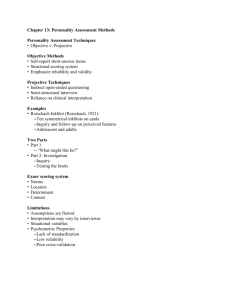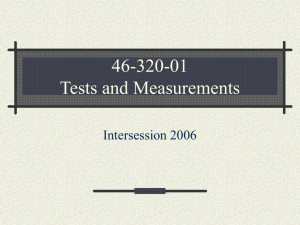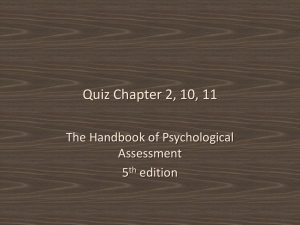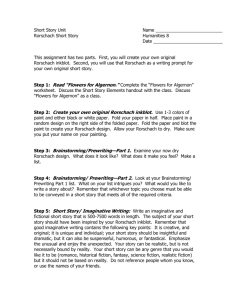Projective personality tests
advertisement
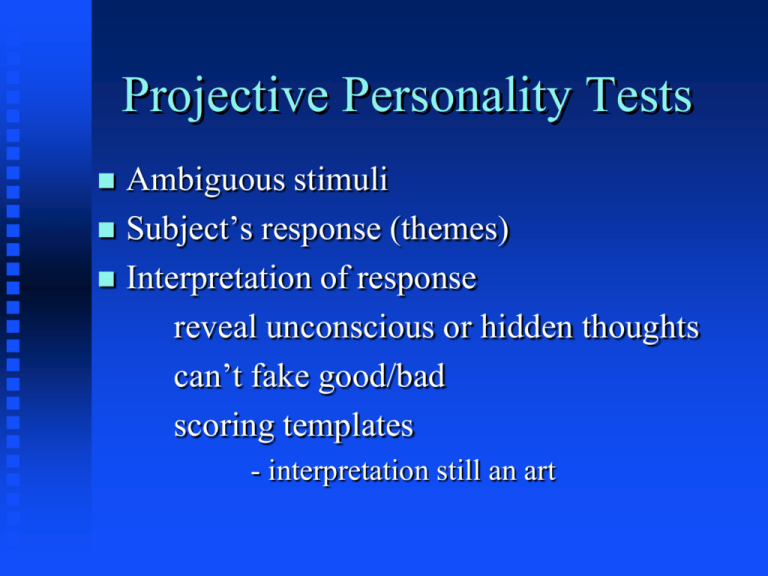
Projective Personality Tests Ambiguous stimuli Subject’s response (themes) Interpretation of response reveal unconscious or hidden thoughts can’t fake good/bad scoring templates - interpretation still an art Types of projective tests Completion (sentences or stories) Associations (to words or pictures) Construction (to stimuli) Arrangement (of stimuli - e.g. pictures) Expression (drawing or play) Completion Sentence completion My best characteristic is…… My greatest fear is……… I only wish my mother had……. Story completion Associations Free association Word association Ambiguous stimuli Rorschach Inkblot Test Herman Rorschach(1921) 10 bilaterally symmetrical images (5 black/white, 2 gray/red, 3 multi) predetermined sequence repeat sequence up to 3 times Exner’s scoring system Examples of Rorschach Inkblots Scoring the Rorschach Major Criteria Location (where on the inkblot?) Determinant (what feature is used?) form, movement, color, texture Content (what was the percept?) human, human detail, explosion, X-ray Popular versus Original Construction (adult) Of stories - tests for adults Thematic Apperception Test (TAT) Murray - 1943 ages 14 - 40 30 pictures - 1 blank shown in two sessions of 10 pictures pictures used varies TAT story elements: Event shown in the picture What has led up to it What the characters in the picture are feeling and thinking Outcome of the event TAT examples Construction (children) Of stories The Blacky Pictures (1946) Gerald Blum 5 to adult psychoanalytic 12 pictures (cartoons of animals) makes up story also answers 6-7 questions about each Construction Of stories - tests for children Children’s Apperception Test (CAT) Leopold Bellak (1950) ages 3 to 10 CAT-A = animals in human context CAT-H = uses human figures CAT-S = animal figures in family situations 10 jigsaw like pictures - can manipulate them Construction Of stories - multicultural Tell-Me-A-Story (TEMAS) (1988/1993) Costanintino, Malgady & Rogler ages 5 -18 23 pictures – 11 sex-specific (x2) Hispanic and African-American or White in Urban settings Expression Symbolic play Drawings - link Draw a Person (Florence Goodenough - 1926) -- children 3-17 -- difficulties with social adjustment I would like you to draw a picture of a person Now - a person of the opposite sex Tell a story about the person House-Tree-Person - link John Buck (1948) Anyone over age 3 May be on 1 or 3 sheets of paper House = child’s feelings to family Tree = feelings of strength or weakness Person = child’s self-concept House-Tree-Person House-Tree-Person House-Tree-Person House-Tree-Person House-Tree-Person House-Tree-Person House-Tree-Person
